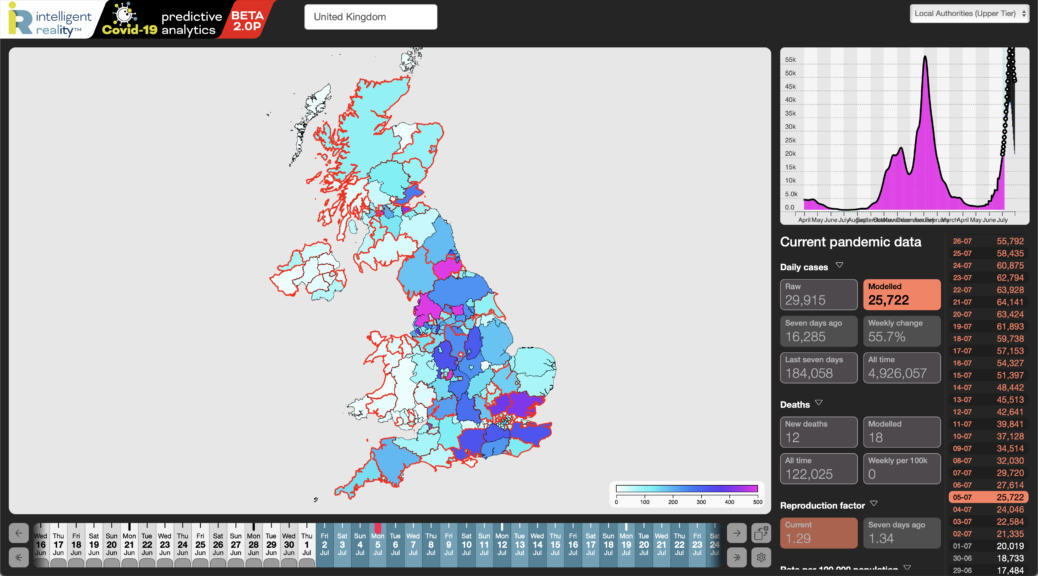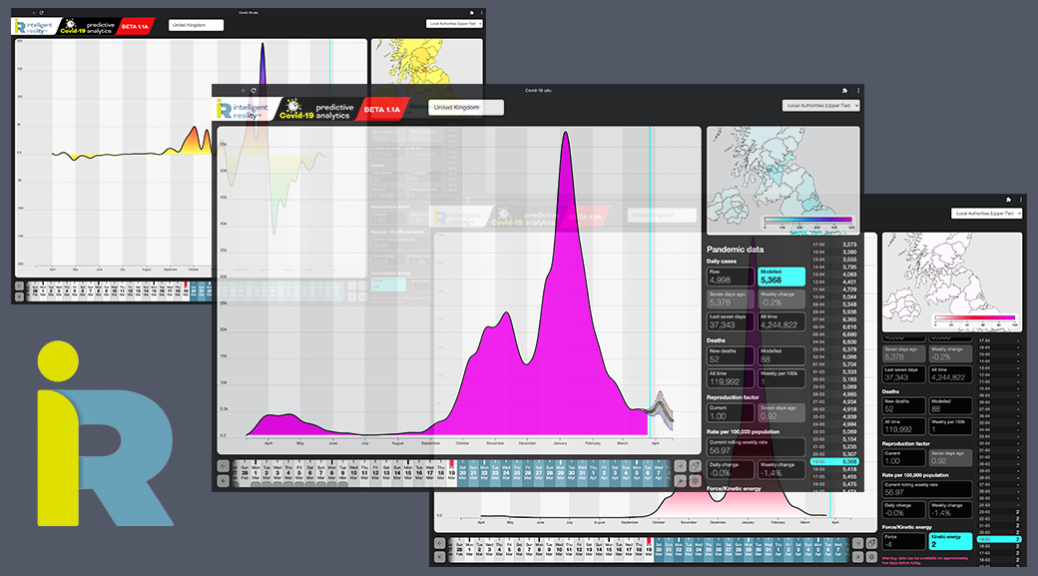
We’ve already shown that our forecasting system has been effective in providing advance warning of the current Third (or Fourth, depending on how you’re counting) wave of Covid-19 cases. With that wave now fully established, we’re looking again at our forecasts, the core data and our dynamic analyses of the pandemic, especially given the latest UK government policy.
With the UK’s rolling weekly case rate now at 238/100k population, up 60% on a week ago, and 40% of the way to the January national peak, we are not reassured. Looking at the behaviour of Chris Whitty’s eyebrows during government briefings, we suspect that neither is he. The current wave is so far unevenly distributed, with urban centres showing the biggest rises, in many cases well above the January peak with, as previously noted, an apparent strong association with those areas most engaged in the Euro 2020 competition. Given little restriction on movement, we believe that these centres of infection are in the process of seeding a ripple of infection across the rest of the country. Continue reading Third Wave Rising →
As of 11 May, our Covid-19 forecasting system started consistently predicting a coming rise in cases for the UK, driven largely (as it turns out) by the Delta variant of the Covid-19 virus. In the UK this has almost certainly been facilitated by both the general relaxation in lockdown and by events such as the G7 Summit and the Euro 2020 competition. So far, so bad.
Other factors though are far more hopeful – we are seeing a very significant decoupling between case rates, hospital and ICU admissions and in particular death rates. This does demonstrate that the game has changed, and that we need to be rethinking our approach to managing our way out of the pandemic.
That said, government policy in many places still appears to be conditioned by the assumption that the vaccines effectively eliminate transmission, something that simply has not been demonstrated. Continue reading Conscious Uncoupling →
A remaining big unknown in the pandemic is not whether vaccines reduce serious symptoms, hospital admissions and deaths – they do – but whether and to what degree vaccines reduce the ability of those vaccinated to infect others, whilst not being symptomatic themselves. As we’ve noted before, initial data on post-vaccination infectivity was somewhat contradictory, so we don’t yet build the impact of vaccination on infectivity into our forecasting.
Continue reading The Last Unknown? →

We all want a normal life. And politicians feel the pressure from their parties and constituents to restore normality as rapidly as possible. Unfortunately, there’s a dissonance between their reluctance to then take needful and decisive action at the earliest possible opportunity and the long-term consequences from the pandemic, where a tendency to treat the pandemic as transactional – something you can bargain with – has driven a patchwork, limited and often counterproductive response to the pandemic. Continue reading The (Long and Winding) Road to Normal →
Two Worlds is an AI research consultancy and incubator, specialising in complex, adaptive systems. We create strategies, technologies and services that encompass advanced data discovery and fusion AI/Machine Learning, IoT networks, augmented and mixed reality systems.


